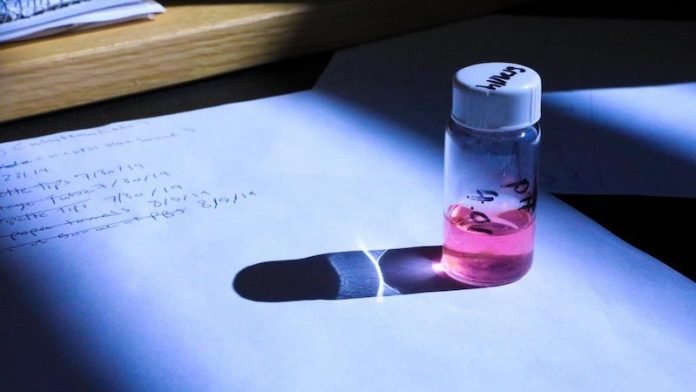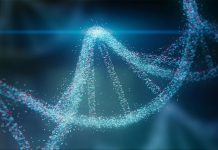
As the deadly COVID-19 pandemic continues to wreak havoc around the world with no end in sight, new ways in which to stop the spread or mitigate the effects of the disease are few.
In a new study, researchers found a possible breakthrough in how to manage this virus, as well as future ones.
They found certain polymers and oligomers, when combined with UV light, can almost completely kill the coronavirus.
The research was conducted by a team at the University of New Mexico.
Although disinfectants such as bleach or alcohol are effective against the virus, they are volatile and corrosive, which limit the lasting sterilization of surfaces treated by these products.
What is different about these polymer and oligomer materials is that when activated with UV light, they provide a coating that is shown to be fast-acting and highly effective, reducing the concentration of the virus by five orders of magnitude.
And this science can easily be applied to consumer, commercial and healthcare products, such as wipes, sprays, clothing, paint, personal protective equipment (PPE) for healthcare workers, and really almost any surface.
For example, when incorporated into N95 masks, this material works well against the virus. In addition to trapping the virus in a mask, this would make for better PPE and prolong its life.
Another unique advantage of this material is that unlike traditional disinfectant products, it is shown to not wash away with water and leaves no toxic residue as a result of the photodegradation process.
Adding the material into wipes would add only pennies per wipe.
Additionally, the material could be added into masks and other personal protective equipment, changing the game for businesses such as gyms, airlines, cruise ships, groceries, health care facilities, schools and many more industries.
In addition to coronavirus, these products could also help eliminate infections by the common cold, seasonal flu and other viral and bacterial infections that plague millions of people annually, causing loss of work and school time.
The team says they are hopeful that this discovery can quickly be put into use.
One author of the study is David Whitten, Distinguished Professor in the Department of Chemical and Biological Engineering.
The study is published in ACS Applied Materials & Interfaces.
Copyright © 2020 Knowridge Science Report. All rights reserved.



